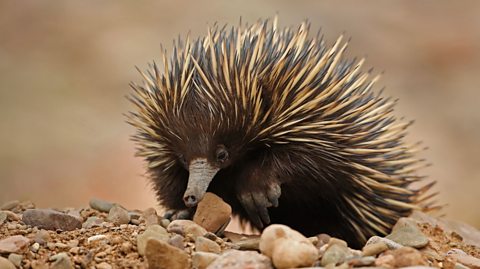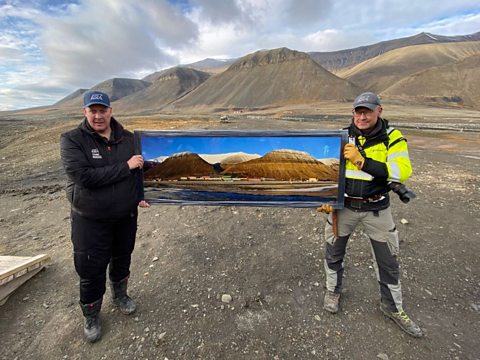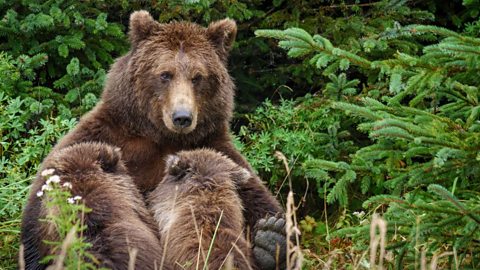2023 has been a year of highs and lows.
Football lovers watched gripped as the Lionesses made it all the way to the final of the FIFA Womenโs World Cup, while Liverpool pulled off organising a spectacular Eurovision Song Contest. And who can forget the historic coronation of King Charles III (and the extra day off)?
Here are four other positive news stories that you might have missed amongst the headlines in 2023, and thatโll hopefully leave you feeling cheerful.

Michelle Yeoh makes acting history with landmark Oscar win
On 12 March 2023, the Malaysian actress Michelle Yeoh made history as the first Asian woman to ever win the Best Leading Actress award at the Academy Awards. She was also only the second ever woman of colour to win the award, following in the footsteps of Halle Berry, the winner in 2002, who was actually the one to present Yeoh with her trophy.
Yeoh won for her role in the multiverse comedy Everything Everywhere All At Once, in which she plays Evelyn Wang, a Chinese-American laundrette owner who discovers alternative versions of herself in different realities and goes on to save the world.
Her win went down a storm on social media, with a hashtag celebrating her win being viewed 360 million times on the Chinese social media site Weibo. Yeoh even received a tweet of congratulations from the Malaysian prime minister, Anwar Ibrahim.
Other awards won by Everything Everywhere All At Once included best picture, director, supporting actor and actress, and original screenplay.

Animal named after Sir David Attenborough proved not to be extinct
Named after the nationโs favourite natural historian and broadcaster, the Attenborough's long-beaked echidna (Zaglossus attenboroughi) was thought to have fallen into extinction. But now University of Oxford researchers have not only spotted this rare creature in Indonesiaโs Cyclops Mountains, they were able to film it as well. Before this, the only example or image we had was a long-dead specimen in the Treasure Room of Naturalis, the natural history museum of the Netherlands.
Echidnas are highly unusual animals because, along with the duck-billed platypus, they are the only mammals in the world that lay eggs. Sometimes described as โliving fossilsโ, they are thought to have lived alongside dinosaurs 200 million years ago.
There are four different species of echidna, some of which have long beaks and some short. The Attenborough echidna and the western echidna are considered critically endangered.

A breakthrough in the fight against ดกฑ๔ณ๚ณ๓ฑ๐พฑณพฑ๐ฐ๙โs disease
ดกฑ๔ณ๚ณ๓ฑ๐พฑณพฑ๐ฐ๙โs is a disease which causes the brain to degenerate and leads to memory loss. You may have heard it referred to alongside dementia, which is a general term for a group of symptoms associated with an ongoing decline of brain functioning, including memory. As well as memory loss, those living with ดกฑ๔ณ๚ณ๓ฑ๐พฑณพฑ๐ฐ๙โs may experience changes in their personality, hallucinations and delusions, problems with speech and language, confusion and disorientation, among other symptoms.
Currently, there is no cure for ดกฑ๔ณ๚ณ๓ฑ๐พฑณพฑ๐ฐ๙โs disease. But in 2023, the results of a global trial showed that a new drug called donanemab could help to make a difference by slowing down the pace of the disease by around a third. It might not sound like much, but it would help people to continue to enjoy their everyday lives for longer.
Used in the early stages of the disease, the drug works by breaking down a type of protein (known as amyloid plaques) that can be found in the brain of people with ดกฑ๔ณ๚ณ๓ฑ๐พฑณพฑ๐ฐ๙โs.

Returning a Norwegian coal mine back to nature
Located far above the Arctic Circle, Svalbard is a group of Norwegian islands in the Arctic Ocean. Home to just a few thousand people, the region spends roughly two months of the year in Polar Night, in which the Sun remains at least six degrees below the horizon.
One of the reasons why people chose to live somewhere so far north was coal mining, which has been the main industry in the area since the early 20th Century. These days however, Svalbard is trying to move away from the fossil fuel industry and focus instead on tourism and research, with the last Norwegian coal mine there due to shut in 2025.
The Svea (or Sveagruva) mine already closed down in 2017, and since then has been the focus of one of Norwayโs largest ever environmental projects, completed in 2023.
Opened in 2001, the mine could produce up to 4 million metric tonnes of coal a year. But visit today and you would see little sign of the buildings, equipment and transport network (including a small airport) required to keep the mining operation going. It has been torn down in order to help return the area back to its natural state. Some older buildings remain as they have protected heritage status. The project has cost an estimated 1.6 billion Norwegian kroner (roughly ยฃ117.5 million), but it is hoped that it will allow creeks in the area to run more freely.
Also in 2023, Svalbardโs main settlement, Longyearbyen, disconnected from its coal power station and switched to diesel, with a long term goal of moving over fully to renewable energy sources. It had been Norwayโs only coal power plant and the northernmost in the world.
Svalbard is famously home to the Global Seed Vault, a vitally important storage facility which helps to preserve the seeds of plants from all the other world, ready for use in case of a catastrophe.
This article was published in December 2023

Five things to learn in 2024
If you're thinking of making a New Year's resolution, ย้ถนนูอ๘สืาณศ๋ฟฺ Bitesize is here to help with inspiration for five things to learn in 2024.

Five well-known animals that went extinct in Britain
Elk, lynx and brown bears all used to roam across Britain.

Four fascinating places weโre not allowed to set foot in
Why an island of snakes, a seed bank and a spiritual rock formation are all off limits.
